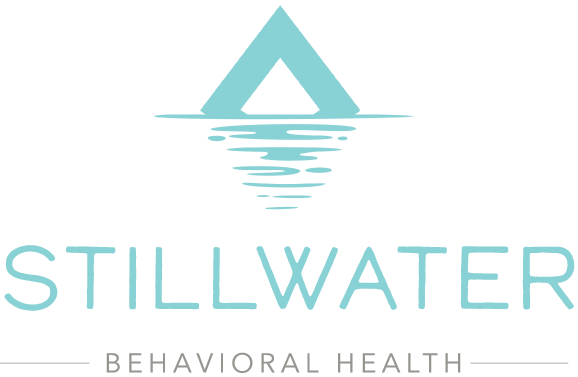Heroin Addiction Health Risk Factors
Heroin is a life-threatening substance that can take over one’s life. Learn more about health risks of heroin here.
What is Heroin?
There is no doubt that heroin is a dangerous and highly addictive drug. For some people, however, their chances of becoming addicted to heroin and experiencing adverse effects are higher than others. According to the National Center for Drug Abuse Statistics, about 117,000 people try heroin for the first time each year. Although not all those first-time users will become dependent, some have higher risk factors for heroin addiction than others.1
Questions about addiction?
Call Us Now: 1-866-232-9103
Your call is confidential with no obligation required to speak with us.
Drug Class
- Poppy
- Dope
- Big H
- China White
- Smack
- Black Tar
- Horse
- Junk
How is Heroin Used?
Most people associate needles and syringes with heroin use. However, many people who are addicted to this drug begin using it by snorting heroin or smoking heroin. Due to the negative stigma surrounding intravenous (IV) drug use, those using heroin for the first time may choose another route to try it.
Unfortunately, heroin remains highly addictive regardless of how it’s ingested. Snorting or smoking it does not protect against addiction. Any individual who becomes addicted risks eventually progressing to IV drug use due to its lure of a potent high.
Signs of Heroin Use and Addiction
Heroin and other psychoactive substances like opioids directly affect the body’s central nervous system (CNS), which controls the body’s vital functions, both physical and psychological. For example, “heroin eyes” — the constricted pupils seen in heroin users— result from heroin effects on optic nerves controlling pupil size.3 Other common signs of heroin use are:
Physiological Signs and Symptoms
- Respiratory depression (slow breathing)
- Slow heartbeat
- Constipation
- Digestive issues
- Skin itching
- Cough suppression
- Pinpoint pupils
Behavioral Signs and Symptoms
- Euphoria
- Loss of Memory
- Confusion
- Extreme mood swings
- Sedation
- Depression
Friends and family who suspect that their loved one is abusing drugs should be on the lookout for the following signs of heroin addiction.
- Poor performance at work or school
- Isolation and distancing from friends and family
- Excessive spending or monetary loss
- Disinterest in activities they once enjoyed
- Changes in sleep patterns
- Needle marks on arms and legs
- Wearing long sleeves and pants to cover needle marks
- Signs of heroin withdrawal
- Signs of an overdose
Factors that Determine the Effects of Heroin
The effects of heroin may differ from person to person, depending on their size, health status, how they ingested heroin, what kind of heroin they used, and how much.4 For example, a small amount of heroin may not — by itself — result in an overdose. However, a small amount ingested in a short time with other drugs and psychoactive substances can create an overdose, worsening the heroin effects.
When heroin is ingested with other substances, the risks and dangers may multiply. As an example, benzodiazepines and alcohol highlight the dangers that surround opioids. Because these drugs can sedate a person, these drugs can potentially lead to an overdose.
Heroin Addiction’s Effects
The effects of heroin on the body can be both short-term and long-term. These adverse effects can result in lifelong health conditions needing medical care.5
Short-Term Effects
- Dry Mouth
- Nausea
- Vomiting
Long-Term Effects
- Collapsed veins (from chronic IV injections)
- Skin infections and rashes
- Recurring respiratory and lung infections
- Brain damage
- Heart and cardiovascular problems
- Sexual dysfunction
- Infertility
- Severe constipation
Risks of Heroin Addiction
- People who are addicted to other substances such as:
- Opioid painkillers
- Marijuana
- Alcohol
- Cocaine
- Non-Hispanic whites
- Males
- Eighteen to twenty-five-year-olds
Once addicted, people who use heroin are susceptible to the following heroin risks affecting health.7

Infections
Repeated intravenous injections open the door wide open to the risk of bacterial and viral infection, especially if needles are shared between users. Blood-borne diseases like HIV, hepatitis B, and hepatitis C are spread through heroin needle sharing and have no cure.
Brain Damage
Long-term heroin use changes the brain, similar to psychoactive substances like other opioids. Data from the Recovery Research Institute shows that heroin addiction affects the reward centers inside the brain, changing the reward system process. These changes affect decision-making abilities and stress response. In addition, overdoses can deprive the brain of sufficient oxygen for long periods, damaging brain cells.8
Death
The most significant health risk of heroin is death through a heroin overdose. Heroin’s influence on the central nervous system causes breathing and heart rate to slow down. A heroin overdose slows breathing down to the point where the body does not receive sufficient oxygen — resulting in death.
Treatment for Heroin Addiction
The best way for people who are addicted to heroin to avoid the health risks is to stop using the drug. Although recovery from heroin addiction is challenging, it is possible. Fortunately, a variety of treatment options exists to fit every individual’s needs.
Detox
- Restlessness
- Muscle and bone pain
- Sweating
- Diarrhea
- Nausea
- Vomiting
- Goosebumps
- Shaking
- Severe cravings
Performing heroin detox in a clinic surrounded by health professionals can make heroin withdrawal symptoms less uncomfortable and distressing for the individual. Heroin withdrawal symptoms depend on the amount of drug used and the length of the addiction.
Rehabilitation
Medication-assisted Treatment
Therapy
Resources
- https://drugabusestatistics.org/
- https://teens.drugabuse.gov/what-are-common-street-names-heroin
- https://www.pharmacologicalsciences.us/respiratory-depression/the-pupillary-effect-of-opioids.html
- https://www.drugabuse.gov/publications/research-reports/heroin/what-are-long-term-effects-heroin-use
- https://www.drugabuse.gov/drug-topics/commonly-used-drugs-charts#heroin
- https://www.cdc.gov/vitalsigns/heroin/index.html
- https://www.uofmhealth.org/health-library/uq2454
- https://www.recoveryanswers.org/recovery-101/brain-in-recovery/
- https://www.drugabuse.gov/drug-topics/health-consequences-drug-misuse/liver-damage
- https://cjasn.asnjournals.org/content/13/7/975


